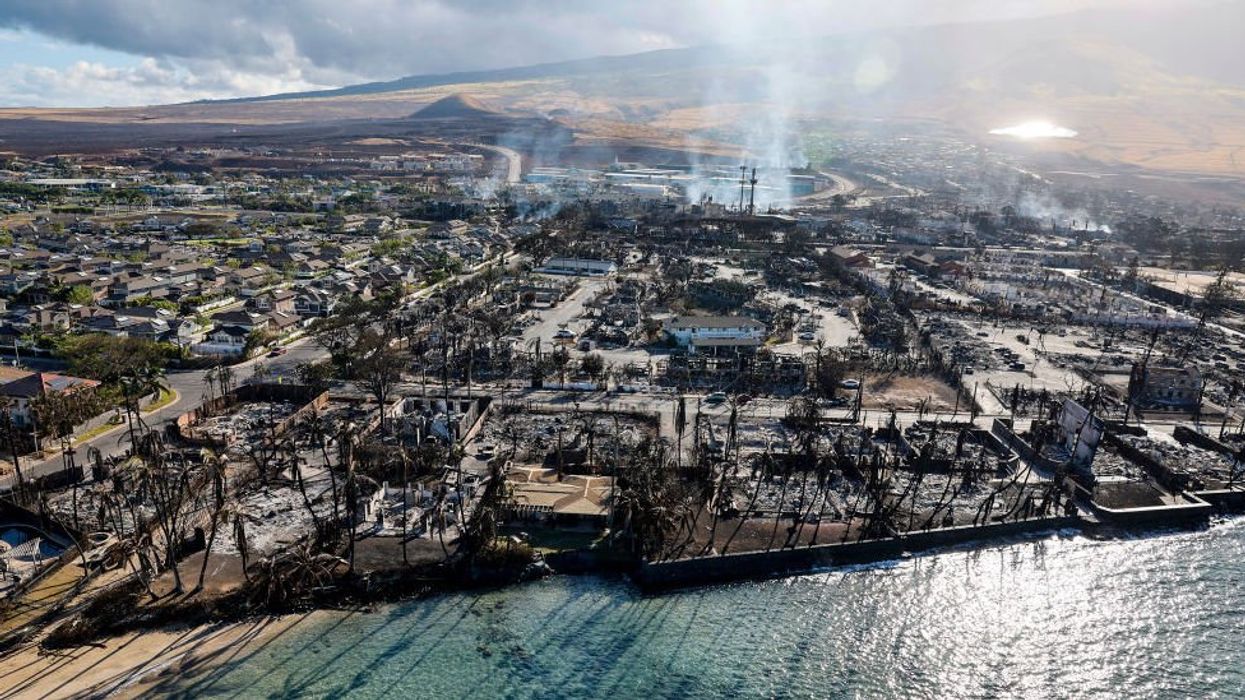
Gauthier/Los Angeles Times via Getty Images

Sen. Mazie Hirono (D-Hawaii) suggested Sunday that climate change played a role in the massive Maui wildfires that killed almost 100 people and left more than 1,000 others missing.
But meteorologists and other scientific experts say not so fast.
On CNN's "State of the Union," host Jake Tapper teed up Hirono to blame climate change for the tragic event — and she took the bait.
"Experts warn that extreme disasters such as this one are only becoming more common because climate change is fueling stronger storms, hotter temperatures, more widespread droughts," Tapper teed up.
"Yes," Hirono agreed. "I think that we very much need to acknowledge that climate change is upon us. There are whole states, by the way, where you can't even use the words climate change because they still have a head-in-the-sand attitude."
Hawaii senator questioned on the 80 sirens that didn’t activate in Mauiwww.youtube.com
Extreme weather events happen all the time, often with devastating and tragic consequences for human life. This is no exception.
Last Sunday, the National Weather Service warned that a high-pressure system north of the Hawaiian islands, combined with a strong low-pressure cyclone in category 4 Hurricane Dora passing to the south of the islands, would create a "strong pressure gradient" over Hawaii.
Translation: it's going to be warm and dry, and there will be a strong chance of damaging winds. That means the potential for wildfires will be higher than normal.
A similar extreme meteorological event struck Portugal in 2017.
Moreover, invasive plant species may have made the Hawaiian land susceptible to wildfires, USA Today reported:
Wildfires have quadrupled in Hawaii in recent decades, and many scientists say the culprit is unmanaged, nonnative grasslands planted by plantations and ranchers and others unfamiliar with the island's native ecosystems. The grass is dry and prone to fires.
“There is no doubt that fire-prone grasses have invaded drier Hawaiian ecosystems and brought larger, more intense fires,” said Peter Vitousek, a professor of earth sciences at Stanford University in Palo Alto, California.
The island of Maui, specifically, is also battling drought conditions, which exacerbated the problem with wind and a lack of moisture.
"The most destructive fires usually occur during drought. If an area falls into drought quickly, that means there is a longer window of time for fires to occur," atmospheric scientist Jason Otkin told the Associated Press.
Climate alarmists will still blame climate change for the wildfires. They argue extreme weather events are happening more frequently than ever before. But for a planet that is purportedly billions of years old, combined with the fact that weather records have been reliably maintained for less than 200 years, that's a difficult argument to prove.
Like Blaze News? Bypass the censors, sign up for our newsletters, and get stories like this direct to your inbox. Sign up here!
Chris Enloe
Staff Writer